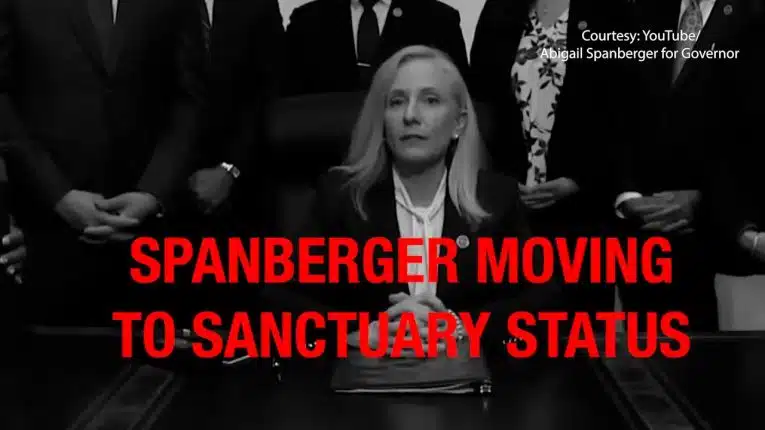
By Rick Manning
The sad reality is that the Republicans in the House after a narrow victory in the 2022 Congressional midterms do not have enough of a majority to be able to accomplish many big things.
This is not the fault of anyone in leadership, but instead is just the reality of what is at this time a one-vote majority with wildly divergent priorities amongst the GOP members in the House.
So, what can they do?
Lay out and set the stage for an aggressive agenda in the next Congress using hearings, introducing and passing bills through committees and even passing some of them to send to the Senate graveyard.
Because it is reasonable to assume that if President Donald Trump wins in November, House and Senate Republicans will both achieve reasonable majorities.
That trifecta, the presidency, Senate and House control — last achieved by Republicans following the 2016 and 2002 elections — allows the GOP elected leadership to pass a couple of budget-related bills needing only fifty votes in the Senate. Preparing for this possibility is the single most important thing that the House should do in the next nine months until the new Congress is seated. It is where big, transformative ideas can become law.
But only if the House furrows the fields and plants the seeds now.
And if I were Donald Trump and Speaker Mike Johnson, I’d want a concentration on measures within the budgetary process to drain the swamp, both from a civil service reorganization and identifying regulations which have a real, quantifiable cost to government, which could be ripped out root and branch using the budget reconciliation.
Two obvious personnel moves would be to engage in a reorganization/right-sizing of the federal government by including a Reduction in Force (RIF) of up to 25 percent of the federal workforce. Truth is you probably could pass a 15 percent reduction, but if you don’t ask for 25, you don’t get to a 15 percent compromise.
While RIFs can be done directly by the executive branch, it is far more desirable for Congress to take the action as a budget reduction measure to stop legal challenges dead in their tracks. Between now and then, the House can and should put together and have hearings on legislation which accomplishes this goal and has taken live fire in order to get the bugs out.
The second action is to have Congress encourage early retirement amongst the civil service. With the Trump team grappling with how to deal with a recalcitrant politically weaponized bureaucracy, one of the best ways is to encourage older workers, who also are usually the most highly paid and powerful bureaucrats, to step aside.
Under current law, the president can offer limited early retirement, but Congress could pass legislation that allows for that early retirement to be much more aggressive in what it offers. For example, the president can offer civil servants a change in their retirement date allowing twenty-year employees to retire rather than having to wait until they have been with the government twenty five years. According to the Office of Personnel Management, the maximum incentive payment to induce early retirement is $40,000. But that employee will be paid a much lower pension payment due to that decision to retire early.
However, if Congress passed legislation authorizing the addition of one, two or even three additional years toward their retirement date if they opt to leave early, there is a much greater chance that a significant number of those high-end employees would exit.
Upon these exits, the Trump administration, working within the civil service selection process would be able to choose new hires to replace those who retired — effectively transforming the brains of the currently weaponized administrative state.
While there are other personnel change proposals on the table, the beauty of the two described above is that each has a budgetary impact that is measurable so they can be done needing only a majority vote in the House and 50 votes in the Senate.
On the regulatory side, the West Virginia v. EPA Supreme Court decision along with subsequent decisions citing that case, have opened the door for a wholesale review of federal regulations leading to the possible elimination of many of these government overreaches through the courts or direct legislative action.
The good news is that if a regulation has a direct cost impact on the federal government, it is possible to include it within a budget reconciliation bill.
While this cost or revenue budgetary impact of regulation might be difficult to identify, this is where the House hearing process including the Appropriations Committee ought to come into play. For instance, we know that some health care regulations increase the cost of government-provided health services, either by increasing the number of eligible participants or by increasing red tape around providing those services.
An evaluation by relevant House committees should be geared to compel a budget impact analysis on regulations ranging from environmental to health care to labor. But this needs to be started now, so the House and Senate have real numbers to work with in deciding whether specific regulations can or should be eliminated in any budget reconciliation bill.
If the House prepares now, drain the swamp legislation can fundamentally alter the administrative and regulatory state — setting the stage for the very beginning of President Donald Trump’s second term as the shock and awe necessary to launch the administration.
One ugly truth is that if President Trump is re-elected, the process of confirming his cabinet and sub-cabinet appointees will take up to a year. This confirmation delay is predictable.
But if Congress is ready to go with legislation ending many of the most unhinged regulations on day one, the regular administrative process can be used to end other egregious regulations which would not be subject to inclusion in a budget reconciliation bill.
Ultimately, this legislation would transition the bureaucracy to their rightful role of being professional lever pullers who implement the law and policies of the elected president, rather than taxpayer-funded resisters who see their job as obstructing the will of the people. If we can accomplish this, our great nation will be truly run through the consent of the governed.
Rick Manning is the President of Americans for Limited Government.






